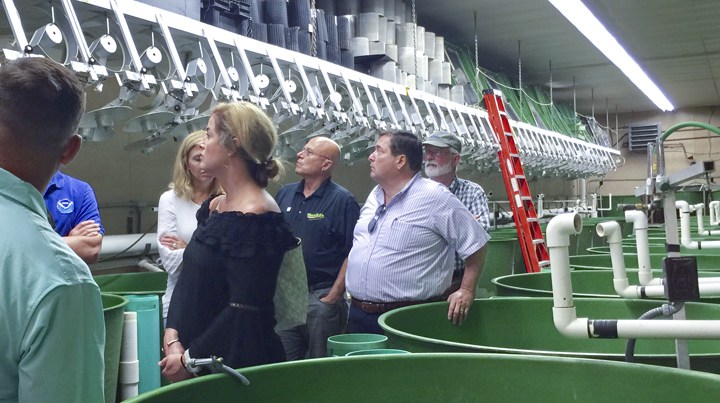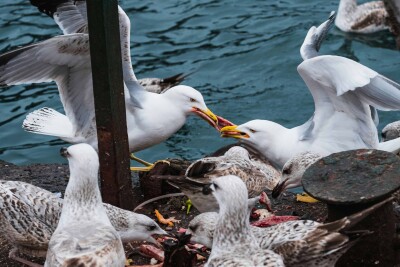Some still aren’t keen on farming
In late July, 20 representatives of the seafood and fishing industry in Alabama, Florida, Louisiana and Mississippi took a trip to Maine to tour the state’s aquaculture facilities, both shellfish and finfish, to consider potential options for the Gulf of Mexico.
NOAA filed a final rule last year that implemented the nation’s first regulatory program for aquaculture in federal waters and recently announced that it would issue 20 aquaculture permits for the Gulf of Mexico.
“Everyone who has access to the gulf should be exploring aquaculture’s possibilities,” said Louisiana’s Lt. Gov. Billy Nungesser. “This is something that Maine has done very well. They are working in close cooperation with their commercial fisheries to make sure aquaculture does not harm their wild caught fish, but instead that they complement one another.”
But aquaculture is not without opposition in gulf states.
“We definitely don’t want any aquaculture in our area,” said Acy Cooper, president of the Louisiana Shrimp Association, in an interview with Houma Today. “With all the food and antibiotics they feed those fish, if something happens and they get out and cross with the wild ones, then who knows what’s going to happen?”
Others are concerned about the established permitting process.
The Center for Food Safety, along with other groups, has filed a lawsuit challenging the legality of Gulf of Mexico fish farming, claiming NOAA doesn’t have the authority to green light aquaculture rules without congressional action.
“What we disagree with is the permitting scheme that has been set up by NOAA,” said Sylvia Wu, a staff attorney with the Center for Food Safety. “We believe that the way permitting is set up that the oversight of all the potential environmental and health concerns with aquaculture have been spread out into different agencies because Congress has never intended to regulate aquaculture through fishing. Aquaculture is viable, but not in the way NOAA and the federal government want to do it.”







